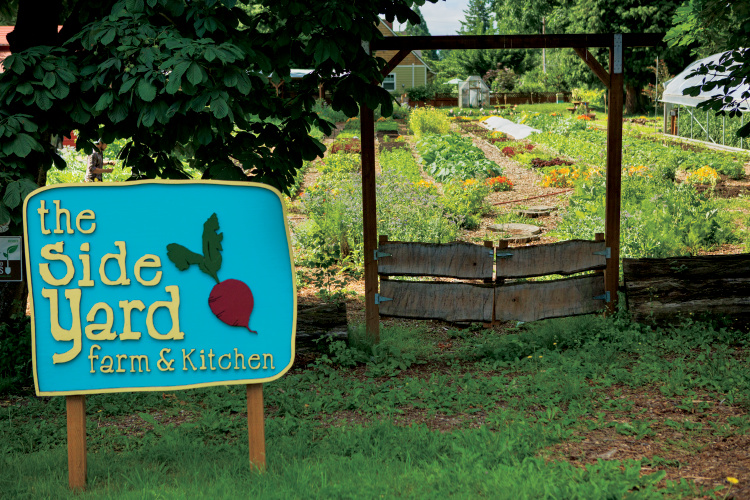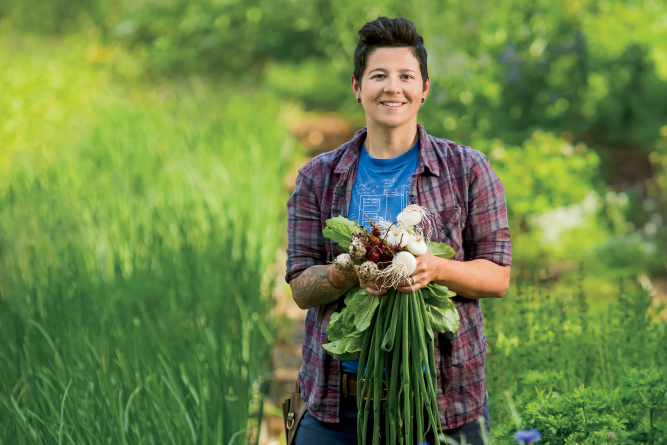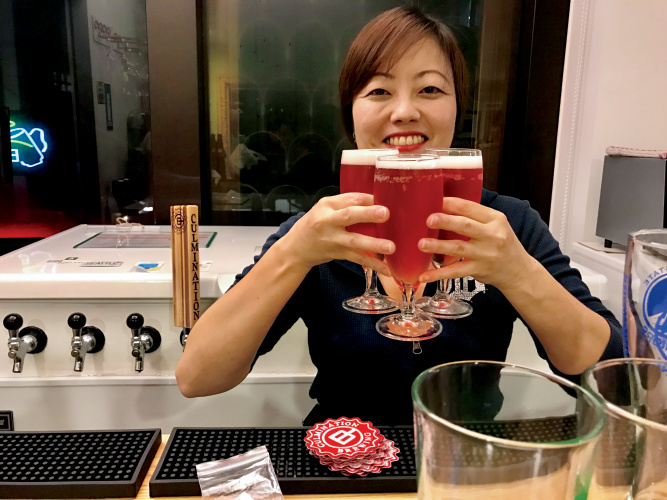Home > Oregon > Oregon Crops & Livestock > Why Oregon Growers Are Collaborating With Japan
Why Oregon Growers Are Collaborating With Japan

Japan and Oregon’s reciprocal relationship dates back nearly two centuries – some say even before Commodore Matthew Perry led an expedition to Japan in 1853. Today, Japan remains Oregon’s top agricultural customer. Half of the wheat consumed in Japan comes from the Pacific Northwest.
“Japan has a very long, strong history with Oregon. Japan is our top export market for food and agricultural products, including fresh and frozen fruits and vegetables. More recently, we’ve been selling a lot of craft beverages – craft beers and even some craft ciders that are just starting to get into the market,” says Theresa Yoshioka, a trade manager for the Oregon Department of Agriculture. “Japanese consumers appreciate premium-quality products, and that’s something Oregon creates.”
According to Yoshioka, most Asian buyers won’t typically email a purchase order over to a company they’ve never met. Instead, they prefer to meet the people behind the company and develop a relationship before doing business with them.

Rooted Rapport
These special relationships are celebrated on both shores and have resulted in several creative – and delicious – culinary collaborations. Stacey Givens owns The Side Yard Farm & Kitchen, an urban farm and catering company in Portland, and began working with Japanese farmers and restaurateurs about five years ago after a Japanese photographer visited her farm. Since then, Givens has hosted Japanese tourists and farmers, and has traveled to Japan several times to tour local farms and host seed-to-table dinners and events.
“On my first trip, I got a chance to tour four different farms, meet the farmers and use their product. I met bakers, ranchers and people who make cheese. I even helped them with the harvest,” Givens says. “Seeing how seriously they take their craft is really beautiful.”
Now, Givens makes the journey to Japan annually and takes other farmers and culinary artisans with her.
 “We call it the Seed-to-Plate Tour, sponsored by Travel Portland, and we do it every fall, as soon as the farm season ends. I pick another farmer or chef to go with me – maybe somebody in the beverage industry, like a winemaker or brewer,” Givens says. “We’ll do farm-to-table events in small towns right in the middle of Japan; it doesn’t matter where. And the whole point is to meet farmers, use their product, share techniques and share seeds – to get connected.”
“We call it the Seed-to-Plate Tour, sponsored by Travel Portland, and we do it every fall, as soon as the farm season ends. I pick another farmer or chef to go with me – maybe somebody in the beverage industry, like a winemaker or brewer,” Givens says. “We’ll do farm-to-table events in small towns right in the middle of Japan; it doesn’t matter where. And the whole point is to meet farmers, use their product, share techniques and share seeds – to get connected.”
Givens has planted native Japanese seeds and incorporated them into her menu.
“We grow Hinona turnips and they’re beautiful. They’re long, slender turnips almost like the size of a carrot, and they’re half purple and half white. The greens taste delicious,” she says. “We also grow Shungiku, which is a type of chrysanthemum. They kind of taste a little bit like carrot tops, but they put out these beautiful flowers, and you can actually eat the flowers, too.”

Brewers without Borders
Tomas Sluiter, owner of Culmination Brewing in Portland, says his cross-cultural collaboration began with a love of sake.
“I’ve been a fan of Japanese food, culture and sake for over a decade,” Sluiter says. “I was a professional beer brewer when I took John Gauntner’s professional sake classes. After that, I got a deeper understanding of sake, and my eventual goal was to open a brewery where I brewed beer and sake.”
While he hasn’t opened a sake brewery yet, Sluiter has successfully experimented with Japanese flavors, such as red rice and yuzu fruit. He caught the attention of Japanese brewers and distributors and soon, was working directly with Japanese brewers to make and sell Portland beer in Japan.
“We did a beer with Ise Kadoya Microbrewery. They shipped us a very specific yeast that is proprietary to them,” Sluiter says. “It was isolated from a tree in the Shinto shrine garden in Ise. We propped it up in a local yeast lab here and brewed a type of Witbier. And we called it Amaterasu after the goddess worshipped in the Shinto religion. That beer turned out fantastic, and we had it released here [and in Japan].
“These stories that I can relay to friends and family. These products that I can bring back. They help people understand that cultures aren’t just single entities. What you come to realize, if you travel and you meet people, is that we’re all humans, and we all love food, and we love friendship, and we love to toast each other with drinks,” he adds. “I think if more people understood that, we would live in a better world.”



